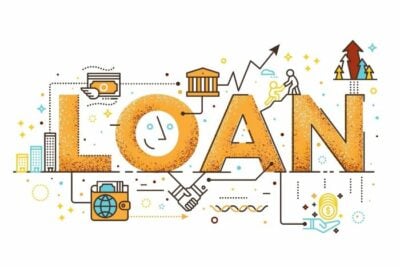Financial stability is a cornerstone of personal and societal well-being, providing individuals and communities with security, peace of mind, and the ability to pursue their goals and aspirations. However, achieving and maintaining financial stability can be a complex and challenging endeavor, especially in a world marked by economic volatility, uncertainty, and rapid change. In this essay, we will explore strategies for attaining long-term financial stability, encompassing both personal finance management and broader economic considerations.
Table of Contents
Understanding Financial Stability
Financial stability refers to the ability of individuals, households, businesses, and economies to manage financial resources effectively, withstand economic shocks, and achieve long-term financial security. It involves maintaining a balance between income and expenses, managing debt responsibly, building savings and investments, and planning for future needs and contingencies. Moreover, financial stability encompasses broader macroeconomic factors, including low unemployment, stable prices, resilient financial institutions, and sustainable economic growth.
Personal Finance Management Strategies
1. Budgeting:
Effective management of personal finances relies heavily on the foundational practice of budgeting. It includes tracking of income, expenses, and savings in order to make sure that spending matches with priorities and financial goals. By creating a budget, individuals can identify areas where they can reduce discretionary spending, prioritize essential expenses, and allocate funds towards savings and debt repayment.
2. Saving and Investing:
Building a robust savings and investment portfolio is crucial for achieving long-term financial stability. Saving regularly and consistently, even small amounts, can accumulate over time and provide a financial safety net for emergencies or unexpected expenses. Additionally, investing in diversified assets such as stocks, bonds, real estate, and retirement accounts can generate returns that outpace inflation and help build wealth over the long term.
3. Managing Debt:
Debt management is a critical aspect of financial stability, as excessive debt can erode financial well-being and limit opportunities for growth. Prioritizing debt repayment is crucial, emphasizing tackling high-interest debts first while ensuring minimum payments are met for other obligations. Additionally, avoiding new debt whenever possible and negotiating lower interest rates or repayment terms can help alleviate financial burdens.
4. Building Emergency Funds:
Establishing an emergency fund is essential for protecting against unexpected financial setbacks, such as job loss, medical emergencies, or major household repairs. Aim to save enough to cover three to six months’ worth of living expenses in a liquid, accessible account, such as a savings or money market account.
5. Handling Unexpected Money Wisely
When you unexpectedly get a lot of money, like through inheritance or if you have won the Powerball Lottery jackpot, it’s important to manage it wisely. Instead of spending it all immediately on things you desire, it’s smarter to think carefully about how to use it. Consider your current needs, future goals, and treats you’d like along the way. By planning ahead, you can make the most of your windfall without wasting it all at once.
6. Continual Learning and Adaptation:
Financial literacy is a lifelong journey, and staying informed about personal finance topics, investment strategies, and economic trends is essential for making informed financial decisions. Take advantage of resources such as books, articles, online courses, and financial advisors to expand your knowledge and skills.
Economic Considerations for Financial Stability
1. Economic Policy and Regulation:
Government policies and regulations play a crucial role in fostering financial stability at both the individual and systemic levels. Policies that promote financial inclusion, consumer protection, and prudent risk management can help mitigate the impact of economic downturns and prevent systemic crises. Additionally, effective regulation of financial institutions, markets, and products is essential for maintaining market integrity and investor confidence.
2. Fiscal Responsibility:
Sound fiscal policy, including responsible government spending, tax policies, and public debt management, is essential for maintaining macroeconomic stability and sustainable economic growth. Governments must balance short-term stimulus measures with long-term fiscal sustainability to avoid excessive debt accumulation and inflationary pressures.
3. Monetary Policy:
Central banks play a critical role in managing monetary policy to promote price stability, full employment, and financial stability. Tools such as interest rate adjustments, open market operations, and quantitative easing are used to influence inflation, economic growth, and financial market conditions. However, central banks must strike a delicate balance between supporting economic expansion and guarding against inflationary risks.
4. Financial Regulation and Supervision:
Effective regulation and supervision of financial institutions are essential for preventing excessive risk-taking, ensuring market stability, and safeguarding consumer interests. Regulatory frameworks should address issues such as capital adequacy, liquidity risk, leverage, and systemic interconnectedness to enhance the resilience of the financial system.
5. Crisis Preparedness and Response:
Despite efforts to maintain stability, financial crises may still occur due to various factors such as market speculation, asset bubbles, or external shocks. Therefore, it is essential to have robust crisis preparedness and response mechanisms in place, including contingency plans, liquidity facilities, and emergency interventions to stabilize markets and prevent contagion.
Conclusion
Achieving and maintaining financial stability requires a multifaceted approach encompassing personal finance management, economic policy, and regulatory oversight. By adopting strategies such as budgeting, saving, investing, debt management, and continual learning, individuals can enhance their financial resilience and long-term security. Moreover, policymakers, regulators, and central banks must collaborate to create a conducive environment for sustainable economic growth, stability, and prosperity for all. By working together, we can build a more resilient and inclusive financial system that empowers individuals and communities to thrive in an uncertain world.










Comments on " Mastering the Art of Budgeting: Your Path to Financial Freedom" :